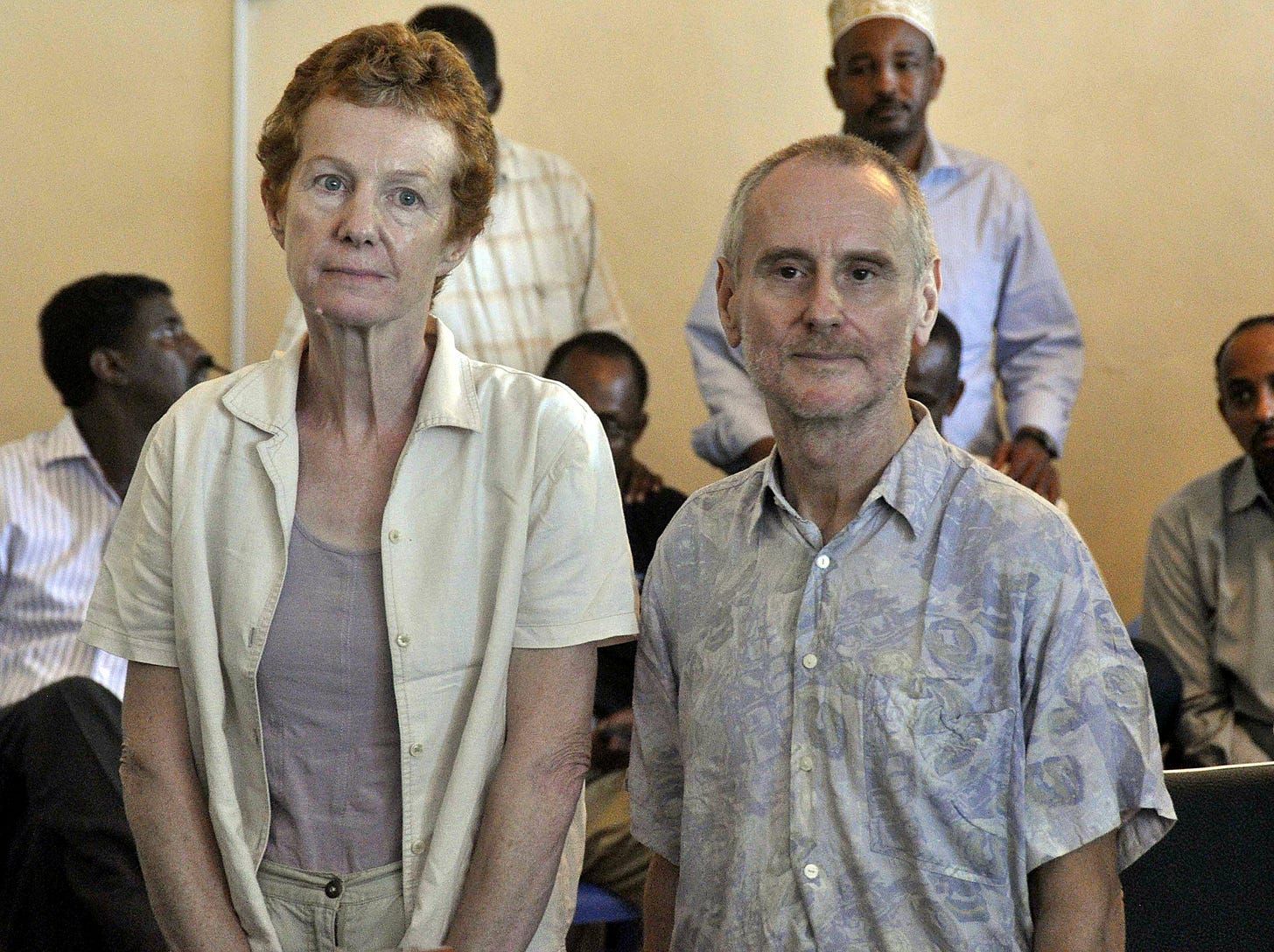Is it time we changed our views on 'not negotiating with terrorists' and banning ransom payments?
When hostages are taken by terrorists, IT systems locked out by ransomware, or oil tankers seized by pirates, is paying up the right answer or does it just make matters worse?
Hello and welcome to Hostile World with Chris Hughes, a weekly newsletter about the world of defence and geopolitics. You can subscribe here and follow me on Twitter @defencechris. Thank you!

The debate over whether people should be allowed to pay kidnappers a ransom has raged for years – especially since so many tragedies in Syria and Iraq.
Continental European hostages were freed after Islamic State terrorists held them for months and enormous sums were paid for their release back to their home countries.
France in particular denies it pays up in the case of terror kidnappings, although it’s a tough thing to admit if you’ve erred from the policy held by many European countries.
The released hostages told heartbreaking stories of what was happening deep in ISIS country, where British and American hostages languished before being killed.
Although the situation was agonisingly awful, UK terror law dictates money could not have been paid for their release as that would be boosting terrorist coffers.
If you pay any money to terrorists, the logic goes, it will come back to bite you as it will fund more terrorism and the fact that this was overlooked in Europe caused tension.
Keep reading with a 7-day free trial
Subscribe to Hostile World with Chris Hughes to keep reading this post and get 7 days of free access to the full post archives.



